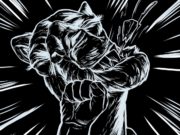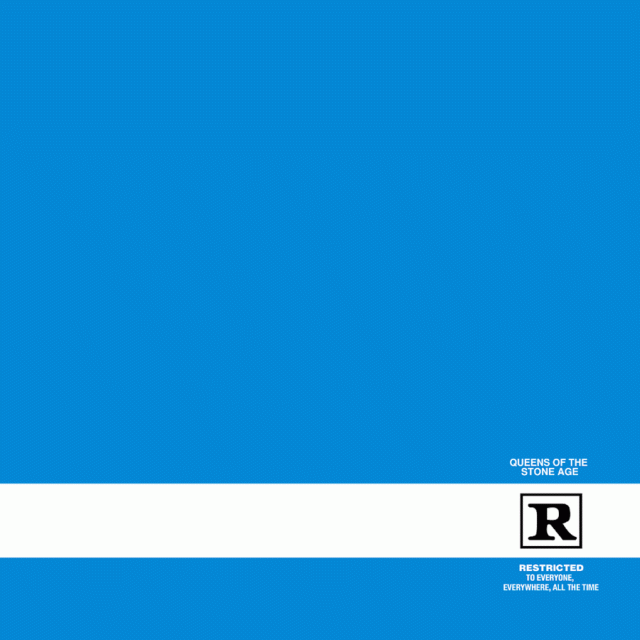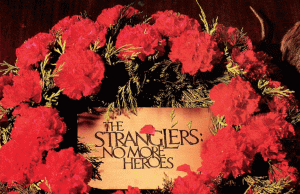Two decades ago, new albums from QOTSA, Bon Jovi, Nash Kato and others were spinning away in my portable CD player. Here’s what I had to say about them back then (with some minor editing):
 Queens of the Stone Age
Queens of the Stone Age
Rated R
“Nicotine, Valium, Vicodin, marijuana, Ecstasy and alcohol.” No, it’s not Keith Richards’ idea of a balanced breakfast; it’s the lyric sheet for Feel Good Hit of the Summer, the first track on Queens of the Stone Age’s Rated R. Hey, it’s nice to see these fuzzed-out Mojave Desert rats are singing about what they know. But the list, which is chanted over a throbbing, chugging guitar groove, also works as a dig at folks who dismiss them as just another stoner-rock outfit, thanks to singer/guitarist Josh Homme’s tenure in Kyuss. It’s an unfair rap; while the Queens do sometimes sound like they’re borrowing Fu Manchu’s distortion pedals, this sophomore disc’s trippy approach — a head mix of ’70s rock, Cheap Trick power-pop, free-wheeling arrangements and glam accents — add up a feel-good-hit you can’t refuse. Just say yes.
 Bon Jovi
Bon Jovi
Crush
Something fishy is goin’ on here. The CD says Bon Jovi, the credits have the usual suspects, but Crush — the band’s eighth disc and first since ’95 — ain’t like any Bon Jovi CD I’ve heard: It’s actually OK. Well, some of it, anyway. I didn’t mind It’s My Life, which rejigs the band’s ’80s arena rock with contemporary electronic touches. Also kinda cool: Say It Isn’t So, a ringing pop gem with a falsetto chorus a la Fountains of Wayne. Then there’s the glammy slow-boogie of Captain Crash and the Beauty Queen From Mars, a title I can’t see Bon Jovi penning. Coincidentally — or maybe not — there are no songwriting credits on the CD. Doubtless, Jon had a hand in all the Bryan Adams-meets-Tom Petty pop anthems and power ballads. But it also appears he’s also relying more on outside tunesmiths — or at least trying to keep up with the times. Either way, it beats another rewrite of You Give Love a Bad Name.
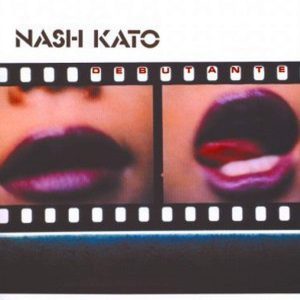 Nash Kato
Nash Kato
Debutante
It’s been five years since we heard from Nash Kato. The stringy-haired stringbean from Urge Overkill vanished after they followed up their best album (1993’s Saturation) with their worst (1995’s Exit the Dragon) and imploded in a black hole of rock-star hissy fits and drug busts. Since then, it seems Nash has been hunkered down writing songs. And surprise, surprise, they sound like UO’s ’70s-style rockers. Or at least sorta; going by these tracks, Kato was the band’s soul man while Eddie Roeser was its rock ‘n’ roll heart. As a result, numbers like Queen of the Gangsters, Zooey Suicide and Los Angelina shuck and jive more than they kick ass. Still, for those of us who miss Urge, it’s just good to have Nash back. Now he just needs to patch things up with Eddie, get Blackie Onassis back in the drummer’s seat and enter the dragon one more time.
 Apartment 26
Apartment 26
Hallucinating
You think you have trouble following in your dad’s footsteps. Apartment 26 singer Biff’s last name is Butler — as in Geezer Butler. As in Black Sabbath bassist, heavy metal legend and rock god. Right there, young Biff has a lot to live up to. And his band’s dreary debut disc isn’t going to make it any easier. Hallucinating is just another flavourless slab of gothy nu-metal, thudding and grinding with hip-hop-charged beats, detuned guitars, electronic samples and plenty of sinister aggro. For a guy who must have been weaned on Sab, Biff’s songs sound less like NIB than NIN — or even worse, like second-rate copycats Gravity Kills. But you know what’s really weird? When he tries to sing instead of whispering or bellowing, he sounds just like Ozzy. Either that or I’m the one hallucinating.
 The delgados
The delgados
The Great Eastern
Lower-case typography. A name borrowed from a Spanish cyclist. Autoharps, vibraphones, dulcimers and euphonia (whatever the hell those are). Yep, if pretentiousness were illegal, this Scottish folk-pop outfit would be on death row. Their music, however, is their Get Out of Jail Free card. Oh sure, it’s plenty arty, but beneath all the tubular bells and twee arrangements there delightful bits of sheer sonic wonder — delicate melancholy melodies that, for some odd reason, remind you of Tom Waits (without the rumbling and fumbling) or Ray Davies (without his occasional smarm). Factor in the darkly shimmering production and you’ve got something akin to Belle and Sebastian with an art school degree and some weight-training. This Eastern may not truly be great, but it’s more than good enough.
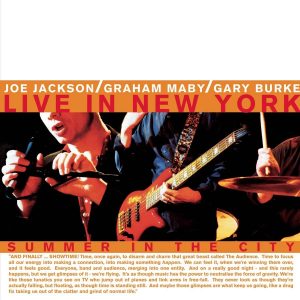 Joe Jackson
Joe Jackson
Summer In The City
These days, Joe Jackson’s most predictable quality remains his unpredictability. Only a few years after abdicating pop stardom for modern classical composition — and less than a year after releasing the grand orchestral manouevre Symphony No. 1 — the musical chameleon has reunited with most of his old band and returned to the pop arena with this near-flawless set taped in a New York club. Kicking off with the titular Lovin’ Spoonful classic, Jackson leads bassist Graham Maby and drummer Gary Burke through a musical retrospective of both his career and 20th-century songcraft. As he mingles classics from The Beatles to Duke Ellington and with his own hits like One More Time and Fools in Love, Jackson makes the most of the sparse accompaniment and respectful crowd, showcasing his keyboard prowess, the band’s near-psychic interplay and his cheeky inventiveness (who else would do a medley starting with Eleanor Rigby and ending with It’s Different for Girls?). If you haven’t bought a Jackson album in a while, now’s the time. And hey, I bet it’s the only Sony Classical album with a cover of The Yardbirds’ For Your Love.
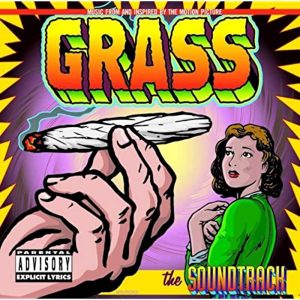 Grass
Grass
Various Artists
And they aren’t talking about the kind of grass that grows in your hard. Unless you’re Woody Harrelson, maybe. The actor/hemp crusader narrates this new pro-pot documentary, which features several classic reefer, er, hits, on its soundtrack. Just as the film traces the history of dope use, the music begins with Cab Calloway’s 1932 Reefer Man and goes right up to Method Man and Redman’s 1998 smoker How High, touching on everything from reggae (Peter Tosh’s Legalize It) to psychedelia (Quicksilver Messenger Service’s Fresh Air) along the way. It’s hardly a completist’s pipe dream ‚— what’s a dope album without One Toke Over the Line, NRBQ’s Wacky Tobacky or anything by Cypress Hill? — but even if it is half-baked, it’s still a hoot. Bogart it.
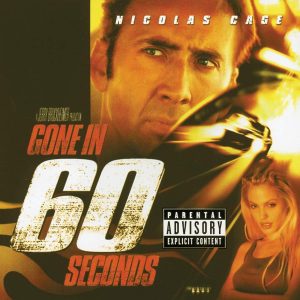 Gone In 60 Seconds
Gone In 60 Seconds
Various Artists
If soundtracks were cars, this would definitely be a sporty little custom job. Rather than go with stock car tunes like Born to be Wild, the folks behind this new Nic Cage auto-theft pic went in for a combination of road-tested acts (Moby, Chemical Brothers, Ice Cube and The Cult, with the latter reuniting here on Diane Warren’s latest vomit-inducing power ballad) and this season’s new models (Caviar, who sort of sound like a heavy metal Beck; electronica whiz-kid BT, teamed here with Soul Coughing singer M. Doughty). Sure, there are a lot of gear changes, but it all goes smooth — mostly since most of the tracks share a driving beat and a pedal-to-the-metal vibe. Don’t leave this disc sitting in the car stereo if you know what’s good for you.
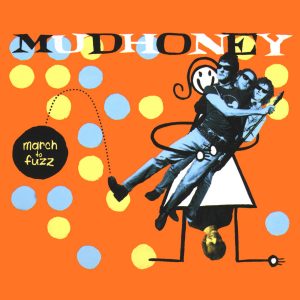 Mudhoney
Mudhoney
March To Fuzz
Talk about snatching defeat from the jaws of victory. Despite being one of the first grunge outfits on the Seattle scene — and now, one of the last — the musical mutts of Mudhoney never found a seat on the grunge gravy train. In a way, it’s fitting — their fuzzed-out sound and drawling vocals were always a little too raw, their lyrical bent a little too kooky, and their shambling style a little too laissez-faire for rock godliness. But this two-disc best-of/rarities set is as close to godliness as you could want. You get one disc of woulda-been-hits-in-a-perfect-universe numbers like Suck You Dry, Touch Me I’m Sick and their Courtney Love-skewering Into Your Shtik (with the unforgettable line, “Why don’t you blow your brains out too!”). Then there’s a CD of lovable leftovers, cool covers (The Damned’s Stab You Back, Elvis Costello’s Pump It Up, Black Flag’s Fix Me, etc.) and five unreleased chunks of their garage-rock grunge brilliance. Track-by-track notes from guitarists Steve Turner and Mark Arm are the icing on the flannel cake.
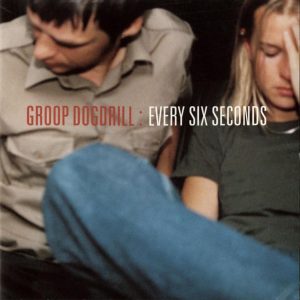 Groop Dogdrill
Groop Dogdrill
Every Six Seconds
The title is a reference to how often men supposedly think about sex. It sure seems to apply to the blokes in British trash-grunge trio Groop Dogdrill. Their first CD, 1998’s Half Nelson, had songs called C–sucker Blues and Salt Peter. This followup picks up where that left off, with 13 more unsubtle, lascivious tracks like On Me Not In Me, Low Sperm Count and Best Sex in Texas. Yes, they do it all for the nookie — and they like it hard and fast. Every Six Seconds is 50 minutes of Seattle’s best ersatz grunge, brewed to maximum strength and served hot and sugar-free with pounding drums, gritty guitars and ragged vocals yelped from the twisted pit of singer Pete Spiby’s soul — even whe the lyrics are “shut your mouth and take your pants down.” Hmm. Perhaps Every Other Second would be closer.
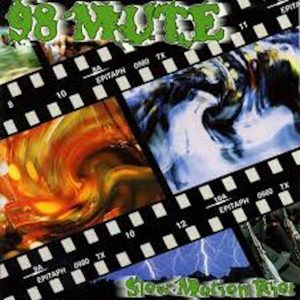 98 Mute
98 Mute
Slow Motion Riot
The title — lifted from a crime novel by Peter Blauner — is about as close as this Hermosa Beach punk outfit gets to slow-motion anything. Their third full-length CD hits the ground running with the blistering title track and never looks back, accelerating through 15 anthemic salvos of high-energy, high-minded skate-punk that screech to a halt after just 47 fever-pitched minutes, leaving you winded and daring you to hit play again. As tight as a set of LAPD handcuffs and packing all the power and punch of Pennywise — no surprise, since P-man Fletcher Dragge produced — 98 Mute are the kind of band that can’t be silenced and definitely deserve to be heard.
https://youtu.be/NcN8iN9Abv4
 Shelter
Shelter
When 20 Summers Pass
Somehow, I never pictured Krishna with a pierced eyebrow and a skateboard. Maybe Shelter’s Ray Cappo knows something we don’t. A former monk and leader of straight-edge hardcore band Youth of Today, Cappo formed Shelter to blend YoT’s ultra-clean beliefs (no drinking, no smoking, no meat products, no sex) with the tenets of Hindu philosophy. In the process, he created what has since become known as Krishnacore. Six albums down the road, he hasn’t diluted his message, though he’s far from some pious zealot. On When 20 Summers Pass’s dozen smartly crafted, crisply produced numbers, he tackles everything from life’s spiritual journey to rock ‘n’ roll road trips with equal passion and insight — not to mention a wicked backbeat and some sizzling guitar lines. Think of it as a blessing in disguise.
 Echoboy
Echoboy
Volume One
What kind of a guitarist turns down a job offer from Oasis? Well, if it’s Richard (Echoboy) Warren, the answer is: A smart one. Formerly of power-pop trio The Hybrids, Warren declined Noel Gallagher’s invite last year to concentrate on this new solo electronica venture. Oasis’s loss is most definitely your gain. Volume One is a ground-breaking musical hybrid that merges the hypnotically repetitive rhythms and textures of electronica and techno with the canny songcraft and melodies of Britpop. Naturally, the press in the U.K. — where it was released last year — already used up most of the good descriptions: Kraftwerk meets Iggy, Faust via Stereolab, Springsteen goes Krautrock, Steve Reich meets Stone Roses, etc. Which leaves me relegated to less pithy descriptives like intriguing, intelligent and intoxicating. They’ll just have to do.
 Tarwater
Tarwater
Animals, Suns & Atoms
With their aquatically themed, prehistorically titled debut Silur, German electro-minimalists Tarwater made quite a splash as they emerged from the primordial ooze of the latest Teutonic boom. On this sophomore disc, however, they have truly begun to evolve. Animals, Suns & Atoms grooves to the same sluggish hip-hop tracks, plink-plunk melodies and Eno-style ambience as its predecessor; however, this time out Bernd Jestram and Ronald Lippok (also a member of like-minded outfit To Rococo Rot) take a more song-oriented approach. While much of Silur consisted of conceptual pieces and spoken-word tracks, these 11 numbers are songs in the traditional sense — hummable hooks, verses and choruses delivered in Lippok’s deadpan sing-speak. In fact, if you close your eyes, it’s not hard to imagine these songs on a late-period Stranglers or Lou Reed album. After such a large creative leap this large in such a short time, Tarwater certainly seem fit enough to survive the next inevitable Krautrock extinction.
 Arab Strap
Arab Strap
Elephant Shoe
Don’t talk your friends into buying Arab Strap CDs unless you’re prepared to suffer the consequences. I learned this the hard way after pushing their last disc Philophobia on various pals — all of whom loathed it and suggested there must be something wrong with me for liking it. Maybe they’re right. Admittedly, this Scottish duo (named for a kinky sex device) are not for everyone. Or even for most. Their songs are bleaker than the dawn after a drinking binge, more depressing than your ex winning the lotto and more discomforting than seeing your in-laws naked. Most of that is the work of vocalist Aidan Moffat, who spins tragic tales of unsatisfying sex, unfounded jealousy, pathetic betrayal and sour defeat in a narcoleptic mutter midway between a suicide note and a drunken confession. Then, Malcolm Middleton’s songs — starkly beautiful ballads that suck you down like warm, enveloping quicksand — aren’t exactly fist-pumping anthems. In fact, they make mope-rockers like Tindersticks seem like Abba. So OK, maybe there’s something wrong with me for adoring Arab Strap. But if something this provocative and transfixing is wrong, who wants to be right?
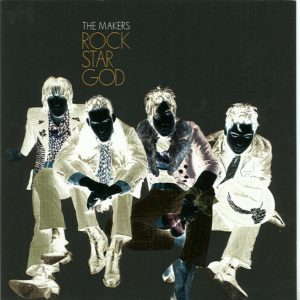 The Makers
The Makers
Rock Star God
With the exception of Marilyn Manson and Courtney Love, most rockers have forgotten how to be rock stars. Not Seattle glam hooligans The Makers. They’ve got the black leather, cheap sunglasses and thrift-store chic down cold. They understand — hell, embrace — the unholy trinity of sex, drugs and rock ‘n’ roll. And on Rock Star God, they’ve taken it to the logical extreme — a concept-album rock-opera about a glam star’s fall from grace after the suicide of his girlfriend. Think Ziggy Stardust meets Phantom of the Paradise on The Wall at Their Satanic Majesty’s Request — as performed by Royal Trux. Think decadent, theatrical glam-rock tracks about everything from groupies (Sex is Good Food) to suicide (“The last cool thing you’ll ever do”). Think the best old-school, kick-out-the-jams album since Buckcherry. Now stop thinking and start listening.
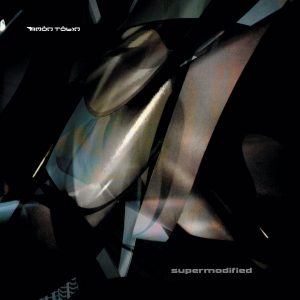 Amon Tobin
Amon Tobin
Supermodified
Brazilian-born, Brighton-based DJ Amon Tobin has always known hip-hop and jungle’s family tree is rooted in jazz. On this worthy followup to his first two genre-bending discs — ’97’s Bricolage and ’98’s Permutation — Tobin finds a few more branches to swing from. Spaghetti-twang and Dixieland jive, belly dance melodies and dubby bass rumbles, folk guitars set to drum ‘n’ bass skittering, clumsy cocktail jazz performed by mariachis, turntable noise with symphonic orchestration — if it even remotely fits together (and sometimes even if it doesn’t), the playful Tobin makes it a part of his eccentric, jerry-built treehouse. Sure, sometimes he goes pretty far out on a musical limb. But even when he leaps before he looks, like the jungle cat he is, he always lands on his feet.
 Towa Tei
Towa Tei
Last Century Modern
If you remember Groove is in the Heart, you might remember Towa Tei, the Japanese-American DJ from ’80s one-hit wonders Deee-Lite. His bandmates caught the train to Hasbeenville a long time ago, but Towa is still as current as a computer virus. And as catchy. Last Century Modern, his seventh solo album in five years (!), crackles and glistens with the same sugar-coated, neon-swizzle-stick exuberance of Stereolab, Cibo Matto and Fantastic Plastic Machine. Slicing and dicing samples and beats like a musical Iron Chef, Towa crafts kitschy-cool constructs for that post-millennial cocktail party in your space-age bachelor pad — and proves that groove is still in his heart.









